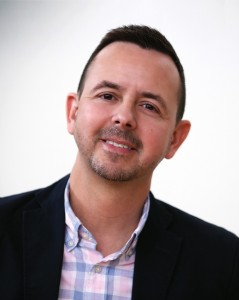Making Peace With Music At Turtle Creek Chorale
ArtandSeek.net March 16, 2018 30We all want peace in our lives — and the Turtle Creek Chorale is determined to help us get there. The Dallas chorale is debuting a song cycle called “Peacekeepers” next weekend. Sean Baugh is artistic director of the choir. In this week’s State of the Arts conversation, he told me how singing turned him into an accidental activist.
The chorale’s been around since 1980. You have about 200 members and they spend hundreds of hours every year practicing and performing. What keeps this effort going?
It’s an inspiration, and always a shock to me, when I look at the numbers and see how much time these men put in. I will tell you that when I ask, the answer is pretty clear. It’s that they believe they can change lives through music.
How does music change lives?
We believe that chorale music especially, has the unique ability to speak very directly to the heart. Not only have our lives been changed because of our involvement in the chorale, but we hear
from patrons how maybe we’ve gotten them through difficult times, or maybe we’ve helped them overcome a drug addiction. Or through this concert, maybe we’ve given them some inspiration to keep fighting for what they believe in.
We’ve heard it over and over again. And through the AIDS crisis especially, the chorale was a source of comfort and strength for a lot of people in the community and now, we’re trying to be that for other groups.
At your concert next week, you’re focusing on anthems.

Sean Baugh. Photo: Turtle Creek Chorale
Looking back, I wish I would have called it something different, because “Anthems” sounds like it’s going to be a lot of church music. And it’s really not that. We put together this concert that is a trip through history. And we explore the music that came out of all kinds of social movements.
We begin the concert with slavery. We go all the way up through the recent women’s marches. And we event touch on the gun debate. All in the course of a two-and-a-half hour concert.
And another thing you’ll be doing, is debuting a new work, called “Peacekeepers.” How did that come about?
Choirs, a lot of times, we sing about peace. But we don’t often sing about the actions that are required from each of us to obtain and achieve peace.
We all have much more in common than we like to believe and we have to find the middle way if we’re going to come to agreement. And then we kind of explore that through the rest of the suite.
One of the movements is called “Blessed Are The Peacemakers.” Tell me what’s behind that?
It’s our own little version of the Beatitudes. And, I think, probably the most powerful movement of the entire work.
We remind people that we are called to be peacekeepers. So, “blessed are the peacekeepers.”
The final song is called “Stand Up” and it’s a really ringing song, and it urges us to stand up and speak our truths when life has got you on the ropes. I wonder if that song has a special resonance for a chorus that is made up primarily of gay men.
I think so. And I think that suits us. Because as a choir, I think we’re accidental activists, in a way.
When I took over the choir, I was very uncomfortable with the idea of a choir being activist. Our job was to make music. And more and more, I saw that basically what we’re doing is protesting through music, I realized that we can do both. We can be activists and still make wonderful music.
It’s a way to honor the people that have stood up, and also to recognize the people who are still standing up. The Saturday of our concert is the big March 24th march for gun awareness. Just that day, there are going to be thousands of people marching through Dallas.
So “Stand Up” is our way of honoring that. And also the Chorale’s way of saying we’re going to continue to stand up for what we believe in.









